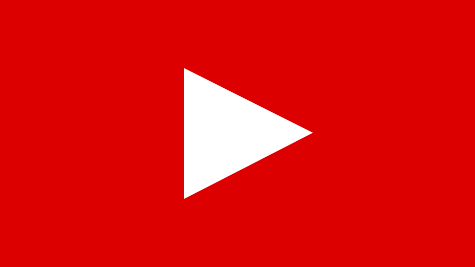Rise and Fall of the Third Reich
High School / History / Holocaust
The Nazi state, known as the Third Reich, or third empire, was the most brutal, cruel, and popular dictatorship in modern history. How did the German people come to embrace such terror? And what was life like for those both inside and outside Germany, who would trapped in its iron grip. The roots of Nazi Germany and the Third Reich lay in the outcome of the First World War. When the war ended in November 1918, the winning powers, Great Britain, France, Italy and the U.S., stripped the old German Empire known as the second Reich of its merchant fleet, its navy, its army, much of its territory, virtually all of its heavy industry, and its 600 year old military monarchy. Not surprisingly, the bankrupt and leaderless German nation quickly descended into anarchy. Unemployment ran as high as 60%, and in the face of hyperinflation, life savings were wiped out in a matter of weeks. Impoverished and bitter, the German people embraced any cause that offered a solution to the dilemma. Within months of the end of the war, dozens of rival factions were struggling often violently for control of the government. In less than three years the Bavarian president, the minister of finance and the foreign minister had all been murdered by revolutionaries. In the capital, Berlin, and most other cities, radical groups on the left and right of the political spectrum mounted general strikes and one uprising after another in an attempt to topple the republic. When government troops suppressed the uprisings with brutal force, revolutionary forces often manned by disaffected army veterans responded by arming themselves and fighting back. When Germany's president Friedrich ebert died in office in 1925. He was succeeded by the aging World War I general Paul von Hindenburg. Conservative by nature, Hindenburg was far more lenient toward the right wing political groups than toward their communist counterparts. What he did not realize was that by tacitly supporting one radical faction. He was, in fact, weakening the government's power to retain control of the state. Among the dozens of radical right-wing groups vying for power was the Munich based national socialist German Workers Party, known by its acronym, Nazi. Backed by World War I general Erich ludendorff, the Nazis had already staged one abortive attempt to seize control of the government in 1923. Due to a sympathetic court, the leaders of the failed coup, including ludendorff and the party's head agitator, Adolf Hitler, received only token prison sentences of 9 months. In the 5 years following Hitler's release from prison in late 1925, the party made spectacular gains in popularity. Largely due to a brilliantly conceived publicity campaign. While others splinter groups and the government itself had little to offer in the way of answers to Germany's problems, the Nazis promised voters everything they yearn for. Under the Nazis, they insisted, Germany would redress the evils imposed on them after World War I and returned to its rightful place at the center of European affairs. To a shattered and exhausted people, they promised prosperity and unity. There would be well paid jobs, an end to civil disorder, and a return to political stability. By offering answers where there seemed to be none, the Nazis garnered the support of hundreds of thousands of Germans, particularly among conservatives, the middle class, industrialists, war veterans, and unemployed youth. It was these last two groups, the young and the veterans that swelled the ranks of the Nazis paramilitary arm, known as the SA. Storm up, all stone division. Because of their uniform, they quickly became branded as brown shirts. The brown shirts held massive parades and political rallies to whip up public support for their party. They also used brutal strong arm tactics to intimidate opposition candidates and disrupt the rallies of other political parties. Even for those who disapproved of the Nazis brutal tactics, their impressive rhetoric and nationwide organization convinced many voters that they were the only party who could restore prosperity to Germany. In the 1932 spring elections, Nazi leader Adolf Hitler stood for president against the incumbent Hindenburg. Now, 85 years old. Although Hindenburg received 50% of the votes against Hitler's 30%, the Nazis demanded a major role in government, and insisted that Hitler been laid Chancellor. It was the third time they had made this demand, the first to attempt meeting with flat rejection. Hindenburg and his advisers now hoped that by offering the Nazis a few token posts at which they would hopefully fail dramatically. They could stem their popularity. It was no secret that dissension was already rife within the Nazi Party, and the added pressure of high office might spell its end. It was a monumental miscalculation. In January 1933, Hindenburg appointed a new cabinet, which included Hitler as Chancellor, another high ranking Nazi as interior minister, and Hermann Göring a popular ex World War I flying ace and Nazi Party member as minister without portfolio. News that party chiefs now held three major governmental posts elated the Nazis. Hordes of brown shirted SA troopers took to the streets in celebration. Thousands of political opponents, particularly communists, was savagely beaten and told to mend their ways or suffer the consequences. Such violent behavior should have met with immediate police action, but with a Nazi as interior minister, the violence was officially ignored. When opposition politicians demanded an end to the violence, Hitler, in his role as Chancellor, simply disbanded parliament. On February 27th, only 28 days after the appointment of the Nazis to the cabinet. The parliament building, known as the Reichstag, burnt to the ground. A young Dutch communist was arrested for the crime, but as a coincidence, it seemed too good to be true. Hitler was granted dictatorial powers to deal with the situation and gleefully extended the harassment, beating and murdering communists, union leaders, and liberals of every kind. Even members of the parliament's communist contingent were imprisoned. Because the party insisted that all Jews were communists. On April 1st, a boycott of Jewish owned businesses was called. It was only intended as a one day affair, but continuing harassment of the Jews became a cornerstone of Nazi policy. To combat the perceived communist related activities of trade unions, a new nationwide union, the DAF, or German work front, was formed, and all union members were forced to join. The DAF was, in fact, no more than a disguise for a new branch of the expanding Nazi Party. Even those political parties that had supported the Nazis were told to disband. The new Germany would only need one party and that party was the Nazis. Despite the Nazis aggressive methods, after two decades of war, revolution and poverty, most Germans were only too happy to accept a government that provided order and stability. What distinguished the new order now being referred to as the Third Reich, from all previous dictatorships, was its astute use of propaganda and publicity to bolster its public image. Radio film, political rallies, leisure clubs, sports teams, art exhibitions, and newspapers were all used as platforms to extol the virtues of the party. Nazi propaganda seldom appealed to the intellect, but went straight for an emotional gut reaction. It was the surest way to get quick enthusiastic reaction from the people. Do you mind if I eat them more than you can make that? I have a positive scholars trying for you. Party propagandists Adolf Hitler and Joseph Goebbels, a former journalist fanatically dedicated to the cause, raised the level of rhetoric from long dull political speeches to an emotionally charged pitch that bordered on religious fanaticism. A constant diet of vague promises, slogans and pictures depicting a future where Germany would once again be the superpower of Eastern Europe, became as placating and mind numbing as a sedative. The people knew what they wanted to hear, and the party was happy to voice their deepest desires, as well as their darkest fears. It was all designed to ensure public support for the Nazi Party. Slogans like ein volk, ein Reich, ein Führer, meaning one people, one empire, one leader, made clear the need for total mindless commitment to the Nazi cause. It also implied that no dissent would be tolerated. To further impress the public with the power of the party, massive parades and eerie torch lit ceremonies were held. Thousands of the party faithful sang the praises of the Reich, while surrounded by blood red banners with the party's bold, graphic insignia, the swastika. I was wondering. To demonstrate that the party would not tolerate dissent, propaganda minister Joseph Goebbels, staged a mass burning of books that opposed Nazi ideology. One author who watched from hiding as his works were tossed under the pyre, later mumbled, first they burned books, later they will burn people. But for the public it was all thrilling exciting theater. It was also a cynical ploy to mask the things the Nazi leaders did not want their people or the world to know. One ominous development was the concentration of decision making to a tiny clique of Nazi officials. To keep the minds of the public off this frightening focus of power, the party touted its progress. There was no more revolution in the streets. There were more, better pay jobs. The economy was beginning to stabilize. Things were getting better. The people honestly believed that they'd made the right choice in backing the Nazi Party. Even for those who were not party members, there were increasing opportunities. One need not be a party member to get a good job, at least so long as you were not communist, Jewish, or liberal. Rich industrialists loved the Nazis. They had broken the power of the unions and in a behind the scenes effort to rearm the nation, government orders poured into the steel mills. Likewise, the army was happy with the new regime because they promised swift rearmament and an expanded military. Everyone in the new Third Reich was happy. Everyone that is, except the brown shirted essay. The Nazis original bully boys. There was no longer a need for head breaking streak that. Order was now being kept by a new paramilitary arm of the party known as the SS. Physically fit well trained and fanatically devoted to the party leaders, the SS or shut staffel was far superior to the SA. When the SA demanded leadership of the army, the request was flatly rejected. The SA was becoming a problem. On June 30th, 1934, Hitler and the party leaders ordered the SS to pacify the SA, along with any other troublemakers they might run into. In a purge known as the night of the long knives, the entire leadership of the essay was murdered. As were hundreds of old political opponents and others who dared criticize the Nazis. Some Germans chose to see it as the Nazis way of turning their back on the gangsters who had brought them to power. Others simply believed the essay thugs had finally gotten what they deserved. Having proven its worth to the party, the SS, along with its leader Heinrich Himmler, quickly became the most elite members of the growing German military machine. In their training, SS men were indoctrinated with Nazi ideology, including a fierce hatred of all Jewish and Slavic people, and a fanatical dedication to protect the Nazi state. With the German people pacified or too scared to speak out against the regime, the government turned its attention to more serious matters, like foreign affairs. Long before it came to power, the openly stated goal of the Nazi Party was the return of all territories lost to Germany's neighbors following World War I. Backed by a well publicized and illegal military build up. From 1936 onward, expansion of the nation's territory became the Reich's number one priority. Long-range plans included taking over Poland and Russia as satellite states. But at the moment, reclaiming former German land would have to suffice. Although Hitler proclaimed again and again, his peaceful intentions towards Germany's neighbors. The party and military worked together to precipitate one political crisis after another. Each one allowing Germany to make demands on a country that had benefited from Germany's defeat in 1918. One such move was Germany's 1934 non aggression pact with Poland. The agreement had, in fact, little to do with Poland. It was designed to anger Germany's traditional enemy and Poland's current ally, France. If France believed Poland had allied itself with Germany, then when the time came, it would be loath to come to Poland's aid in a conflict with Germany. The move was both clever and extremely cynical. By 1938, territorial expansion of the Reich began in earnest. Between April and September of that year, Hitler demanded the return of the Rhineland and the sudetenland. Sections of Germany that had been ceded to France and Czechoslovakia respectively in 1918. It was, in reality, a test to see what if anything, the major European powers of Great Britain, France and Russia would do. They did nothing. And both the Rhineland and sudetenland were annexed to Germany. That same year, the entirety of Austria fell under German control in a move referred to as the anschluss, or coming together. When German tanks rolled through the streets of Vienna, they were met not with guns and resistance, but by cheering crowds. After only 5 years in power, the greater Third Reich was becoming a reality. Whatever reservations the German people may have had about the Nazis, their leaders and the concept of a new German Empire disappeared in wave after wave of celebration. The Third Reich had delivered on its promises. Germany was a game great and prosperous. Up to this point, the government had studiously avoided military confrontation and had to all appearances tried to make peace with old enemies. In the closing days of 1938, a non aggression pact had even been signed with France. With the coming of the new year, however, the attitude of the Reich changed dramatically. And being at the same time and about 50 feet. Be it evidence. Yes. In March 1939, the Czech government was given an ultimatum. Surrender its entire country to Germany, or be destroyed. To save their people from the horrors of an all out invasion, the Czech government caved in. The immigrants that flew around the streets and at home. I'm urban dismissed Mercedes, swiftly to hopes that's the email you shake the Slovakia. Of the Prague has been stolen since its conductor. To make their overall intentions clear, immediately after signing a non aggression pact with the Soviet Union, Germany brutally invaded Poland on the 1st of September 1939. Poland's allies, England and France reluctantly declared war on Germany, but dawdled while Poland was overrun. The poles put up a valiant struggle, but after only one month were forced to capitulate and Poland became annexed to the rice territory. As though to celebrate the victory, days after the fall of Poland, Hitler offered permanent peace to France and Britain. The offer was flatly rejected, but tellingly neither country made a move against Germany. Throughout this period, the German Army had relied on fast moving, highly mechanized, hit and run tactics designed to catch the enemy off guard and keep military action a short as possible. Known as blitzkrieg or lightning war, the tactic both ensured that Germany is still limited military capacity would not overreach itself, and avoid it putting Germany on an all out war footing. Such a move might have endangered the popularity of the Nazi Party and threatened its grip on the right. Faced with a rapidly expanding Germany which gave every sign of remaining strong for decades to come. Many Eastern European countries allied themselves with the Reich, simply to avoid having their people murdered in a senseless war. Slovakia, Croatia. Romania and Hungary all succumbed to the German threat and became reliable satellite states, expanding the Reich even further. Despite its increasingly aggressive attitude, the Nazi Party and Hitler remained popular with the German people as well as with many new members of the Reich. Like Austria and German speaking poles and Czechs. The Reich's workers and soldiers were made to feel that they were the real heroes of Germany's struggle against her enemies. Employees at all levels were given opportunities for continuing education and appropriate job and pay advances. To further seduce followers to their cause, the government promised that soon every worker would be able to afford their own motor car and in the due course of time be moved out of a pop and buildings and into their own house on a piece of private land. Land that undoubtedly would be carved from the overrun territories of Poland and Czechoslovakia. With the people firmly behind them, the German government moved its troops from Eastern Europe to the west. In the spring of 1940 they overran Denmark and Norway, and by May were poised for more of the same all along Europe's western border. Like dominoes, the Netherlands, Belgium and Luxembourg collapsed under the Nazi onslaught as German troops headed straight into France. In a brilliantly executed example of blitzkrieg, German armies cut France's defending armies in half, driving those in the north along with their British allies toward the English Channel. While thousands of British and French troops were evacuated to England, the southern half of France sued for a separate peace in the hope of staving off further war. In late June, 1940, the Third Reich reached its greatest territorial extent. The lord is closer to the. End of the war. The floor is closer to. The. Sun it's the. Most. Fun. I thought it was. Supposed to be coming. Up and I. Started out thinking. From Germany's 181 million square miles of land, the Reich had grown to control 323 million square miles of territory. The number of people subject to its whims, policies, and random brutality had risen from 65 million to more than a 106 million. Although the Nazis tried to keep Britain out of the war by offering another of its useless non aggression pacts, the British refused to cooperate. Vowing to erase England from the map, German planes began the largest bombing campaign in history in July 1940. But strangely, despite years of military buildup, the Germans had never developed an effective heavy bomber. The German air force, the Luftwaffe, inflicted terrible damage on military installations and civilian targets alike. But they were constantly beaten back by the heroic efforts of Britain's Royal Air force. Three months after the campaign against England began, Germany retired to the continent. England had suffered untold thousands of deaths, and its cities were devastated. But the Luftwaffe had lost nearly 200 planes. A loss that German industry could not replace. Even as it reached its greatest extent, signs of trouble were already appearing for the Third Reich. Wisdom should have canceled caution and fence mending. But such ideals were nowhere in the Nazi philosophy. Frustrated at Britain's stubborn refusal to be beaten. Hitler and the party bosses kept the island kingdom and Western Europe under constant pressure, while shifting their main efforts elsewhere. In late 1940, plans were laid for the invasion of Russia, who the Germans correctly guessed were only waiting for an opportune moment to break the non aggression pact themselves. But plans for the invasion were temporarily set aside in favor of overrunning Yugoslavia and Greece. The only remaining three states of Eastern Europe. By the time they returned to the Russian situation, it was midsummer. Considering the vast size of the Soviet Union, the invasion would require timing more precise than any previous blitzkrieg. If Moscow was to be taken before the onslaught of the notorious Russian winter. In spite of ample warnings of a German invasion, Soviet dictator Joseph Stalin was caught completely unprepared. Russian plans had focused entirely on offensive war. The defense of Maharashtra had been almost entirely ignored. When the invasion of Russia began on June 22nd, 1940, the initial phases went better than the Germans could have hoped. Vast stretches of Russia were overrun virtually without resistance. Those Russian troops which the Germans did encounter were poorly equipped and their positions quickly collapsed. Over the bodies of millions of Russian dead, military and civilian alike. The Germans forged relentlessly toward major cities like Stalingrad, Leningrad and Moscow. Only when the autumn rains set in and dirt roads turned into endless miles of swamp, did the blitzkrieg slow to a crawl. Weeks later, The Rain turned to snow and sleet, trapping three entire German armies, thousands of miles from home. With armed forces all over Europe and North Africa eating up supplies and fuel. There was no way the Germans could continue supplying the Russian front. Frantic requests for withdrawal were flatly refused. Not an inch of captured territory would be surrendered. Even before the opening of a massive Russian offensive in December, hunger cold and disease were taking a horrible toll on the armies of the right. Because several Russian satellite states such as Belarus, the Baltic states and oil rich Ukraine hated their communist masters, they would have been more than happy to join the greater Reich. But Nazi philosophy insisted that the subhuman Slavs be treated like cattle. SS death squads that had murdered millions in Poland now turned their wrath on potential allies and Germany lost its last and only chance for a successful Russian campaign. On the western front, things were going no better than they were in the east. The U.S. had been supplying huge amounts of arms and ships to Great Britain, almost since the evacuation of Dunkirk in May 1940, and despite Germany's best efforts, the British were showing no signs of giving up the fight. Hitler realized that American entry into the war was inevitable. But he hoped it would not happen until the Russian situation stabilized. This was not to be. While Germany's slogged its way into the second year of bloody conflict in Russia, Germany's Japanese allies attacked Pearl Harbor in Hawaii, forcing America into the war. Furious that Japan had not consulted him before launching their attack, and equally enraged that his generals could neither defeat the Russians or hold off the British in North Africa. Only days after Pearl Harbor, Hitler simultaneously took personal control of all German military movements and declared war on the U.S.. The Führer was losing faith in his generals. The generals were losing faith in the war and the Reich was suffering. Were the people still loyal. Were they worthy of living in the Reich? Something had to be done to ensure the loyalty of the people. To purge the doubters and traitors from the Reich. To address the problem, right leaders, Hitler, himmler and goring began working furiously to get rid of their enemies and protect the state. Himmler's SS troops began using forced labor to build concentration camps all over Germany and Poland. Jews communists, homosexuals, gypsies, and anyone who spoke out against the regime was herded into the camps to be worked to death or simply exterminated en masse. Over the next three years, millions of innocent people were to die in the camps because they might not be worthy of living in the glorious Third Reich. No matter how many died in the concentration camps and on the battlefield, the tide of war stubbornly refused to turn in favor of Germany. And now the war was being brought home to the fatherland. The massive build up of American bases in England, combined with a German industrial inability to replace aircraft at the speed they were being lost, gave the allies an open door to start bombing German military bases and cities. The attacks had begun early in 1942, and in May of that year, more than a thousand RAF bombers spent two days and nights obliterating cologne. By autumn, Germany was losing ground on all fronts. North Africa collapsed and the Russians were reclaiming their lost territory at a horrendous cost in German lives. At the end of January 1943, the German 6th army, the backbone of the Russian invasion, had taken losses of nearly 300,000, and the largest tank battle in history had ended in a total German defeat. In July, allied forces landed in Sicily and began bombing Rome. Two months later, Sicily fell, the Italian mainland was invaded and partisan fighters were attacking German soldiers in virtually every occupied country. German cities were subject to day and night bombing raids, and industry was struggling just to stay in operation. Just ten years after its founding, the Third Reich, which Hitler had predicted with last a thousand years, was collapsing. Despite the best efforts of the SS and the state secret police, the Gestapo. People were losing faith in the Reich. In February 1943, an anti Nazi uprising of students and dissidents in Munich exposed the apparently successful solidarity of the German people for the sham that it had always been. But it was not just the common people who were angry. High ranking officers and those in the general staff could clearly see what was happening, even if Hitler and the party bosses could not. If there was any hope of saving the Reich, something had to be done. Hitler and his inner circle would not see reason, and there was no longer any legal means to remove them from office. There was no alternative. Drastic action was necessary. Conspiracies to kill Hitler sprang up everywhere. Clergy and high ranking civilians plotted with disaffected military officers to end the war. March 1943 alone saw two failed attempts to assassinate Hitler. In one, the conspirators were caught before they could act, and in the other, a bomb placed on Hitler's plane failed to detonate. Months later, in an effort to stem the tide of disaffection, Hitler instructed SS chief Heinrich Himmler, to combat the air of defeatism, sweeping through Germany. What he meant was to increase the terror. Now the nearest step out of line could cost a person their life. Listening to a foreign radio broadcast, writing an anti Nazi slogan on a bathroom wall or making a rude joke about the Führer were all punishable by summary execution. When a Catholic priest in Berlin led a prayer for the Jews, he was sent to join them in a death camp. The German people once avid supporters of the Nazis because they promised stability were now being exterminated both by allied bombings and their own government. German soldiers trapped on the Russian front were being annihilated at an astounding rate. If all this were not enough, on June 6th, 1944, American British and Canadian invasion forces landed on the French coast at Normandy. Completely unable to meet this new offensive. The German armies in France were steadily pushed back toward the border of Germany. With the exception of one final offensive in December 1944, known as the Battle of the Bulge, the forces of the Reich could do no more than mount a slow withdrawal toward their homeland. In a fighting retreat, they inflicted as much damage on the enemy as they could. But it was all in vain. Germany, Hitler and the Third Reich were doomed. Frantic and half mad, Hitler ordered the mobilization of every male between the ages of 16 and 65. Everyone was ordered to fight to the death. Anyone who questioned the order was executed on the spot. Finally, faced with the inevitable collapse of his now shattered empire. Hitler ordered the complete destruction of his own country. Those he said who could not defend the Reich, did not deserve to live. By the end of April 1945, all that was left of the Third Reich was a few hundred square yards surrounding the bombed out shell of the chancellery building in Berlin. The Russians had nearly overrun the capital and the Americans and British were only a few miles to the west. On April 30th, while German troops and officers were scrambling to surrender before being killed in the now useless struggle. Adolf Hitler and his propaganda minister Joseph Goebbels, along with their families, committed suicide in a bunker, beneath the chancellory. After 13 years of terror, Germany's Third Reich had come to an end. In the final analysis, it was the Reich's own fanatical dogma of hatred, intolerance, and repression that had spelled its end. The cost had been beyond comprehension. Nearly 34 million had died in Europe. Nearly one third of them civilians. Half of those executed at the hands of the Third Reich.
























